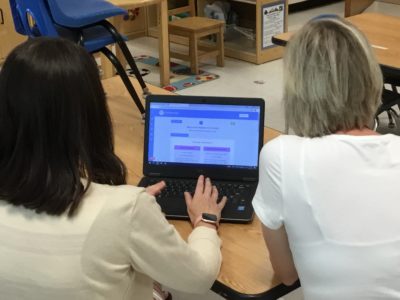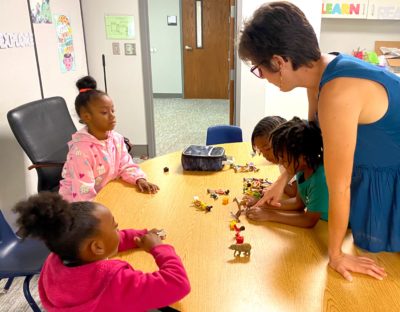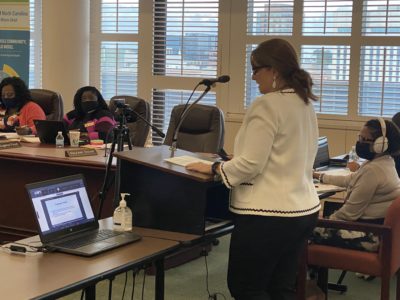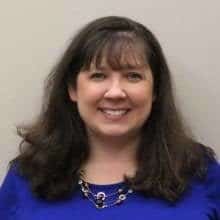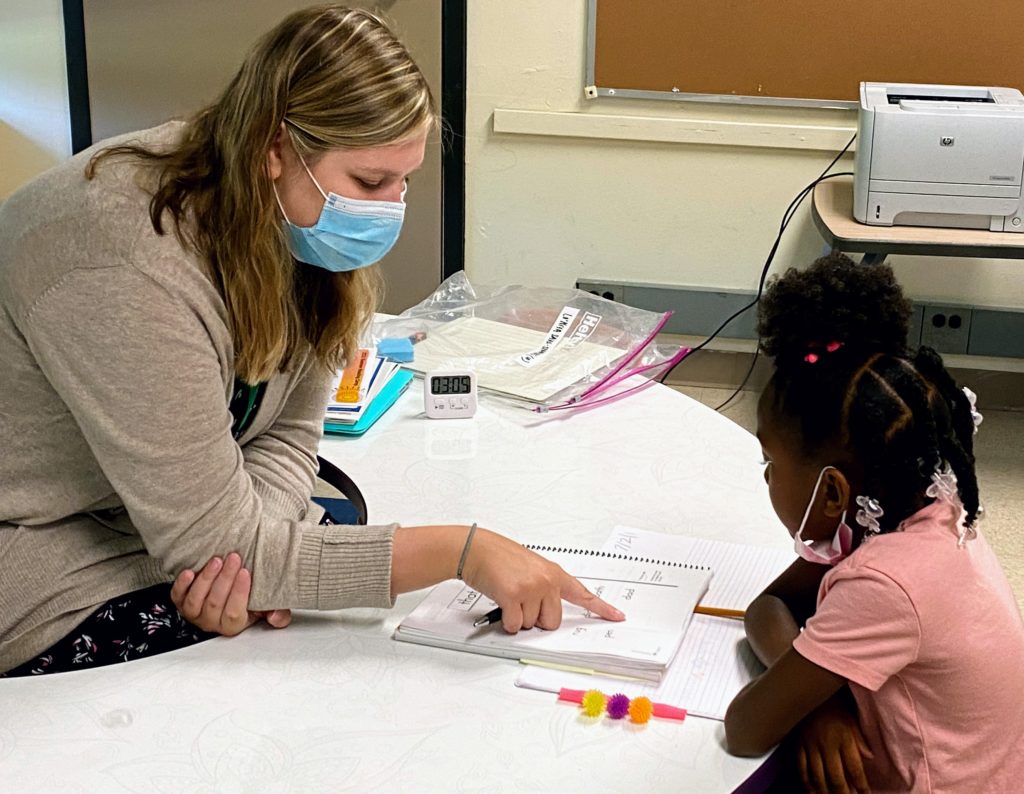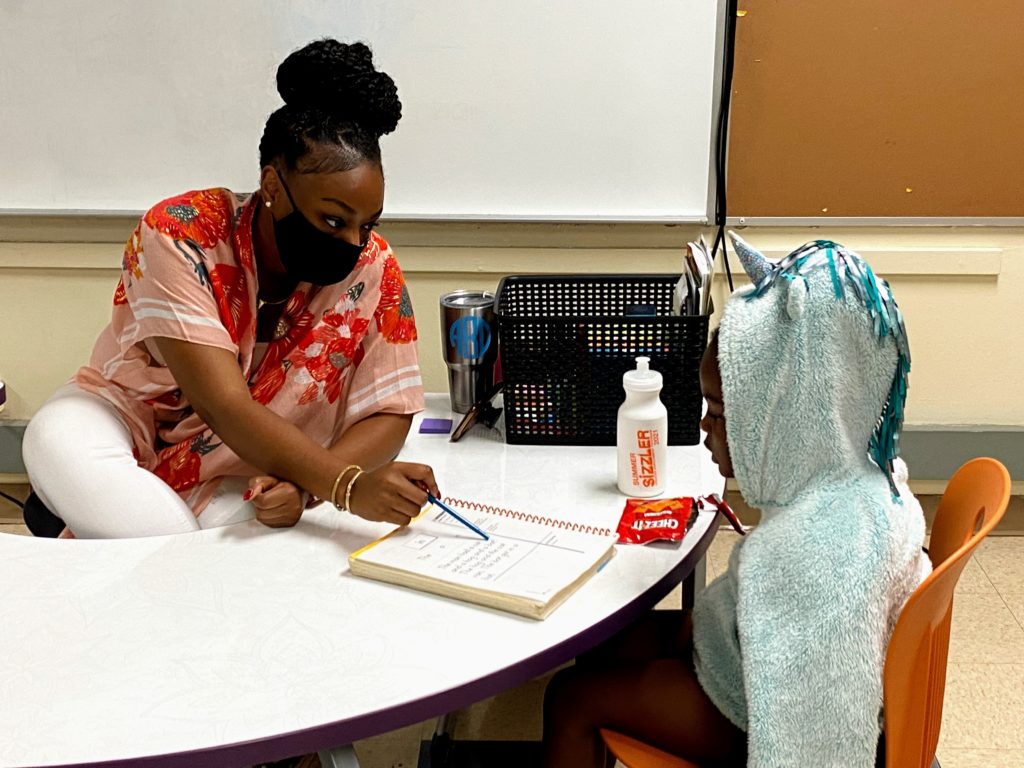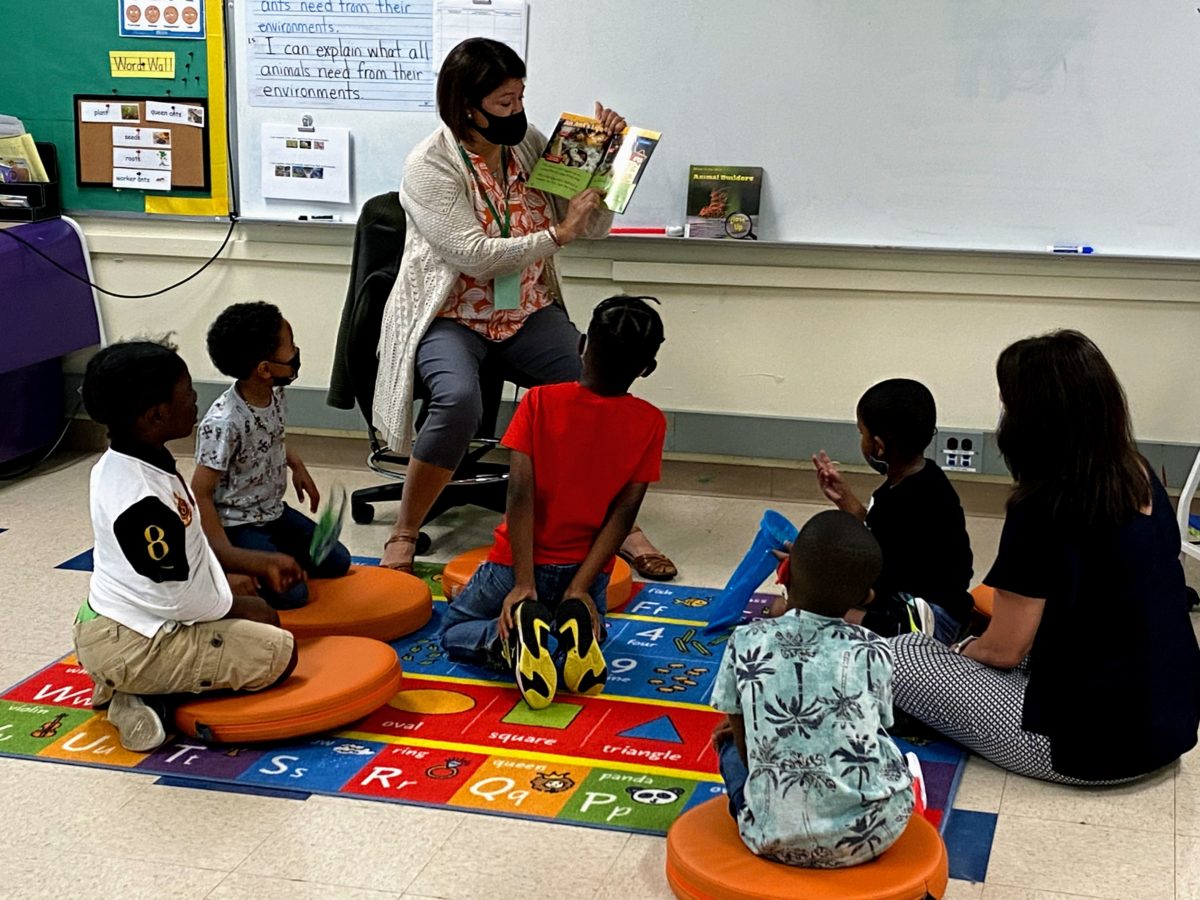
Summer is an opportune time to offer children programs that provide academic support, enrichment opportunities, and social and emotional growth. Given the impact the COVID-19 pandemic has had on the past two school years, this summer’s added support was more important than ever.
At Niner University Elementary (NUE) in West Charlotte, 51 rising first, second, and third grade students blossomed through a research-based, multi-pronged approach to summer learning: foundational reading support, integrated science and literacy support, and a wide range of enrichment activities.
Students made significant growth in reading skills throughout the summer. The models of both the school and the summer camp hold promise for building literacy across the state.
NUE, which opened its doors during the 2020-2021 school year, is a public school developed, supported, and operated by top education experts from UNC Charlotte’s Cato College of Education. It’s the sixth lab school to emerge across the state in response to the General Assembly’s UNC Laboratory School Initiative. The initiative was created to provide enhanced educational programming to students in low-performing schools.
Lab schools allow teacher preparation programs to utilize and promote innovative approaches that can be transformative for struggling students while also providing the next generation of teachers and administrators with hands-on experience in the field. The goal is to offer a model for other North Carolina public schools to follow to achieve similar successes.
Creating a successful model for early education
“A goal at the UNC Charlotte Cato School of Education is to build stronger more robust clinical experiences and to teach the next generation of educators about best practices. These literacy innovation leaders are going to be doing this work prior to their year-long internship and student teaching,” said Brandon Prescott, director of development for the college. “Our other focus is research. We want to be a model for other people to come out and see and learn from us, and then they can scale it to individual schools or a whole district.”
While the university has hosted a summer reading camp for the last six years, opening a second site at NUE significantly expands its ability to support local elementary students, offer area teachers the opportunity to practice new evidence-based programs for teaching reading that they can apply in their own classrooms, and provide the university’s future educators with valuable clinical experience.
Impressed by the camp’s innovative, evidence-based approach to summer learning, The Mebane Foundation began supporting the program last year, and was pleased this year to provide a grant of $50,000 to support both the original camp for students at Windsor Park and Oakhurst Elementary Schools and the new program at NUE.
“The UNC Charlotte Cato School of Education partnership offers the foundation the opportunity to leverage its resources in multiple ways that are true to its mission,” said Mebane Foundation President Larry Colbourne. “First and foremost, the summer program affords younger students the opportunity to access incredible resources and literacy support, while at the same time the investment supports the important work of the College to expose pre-service and great in-service teachers to different interventions in a practical setting. Finally, through this program, the foundation is able to extend its reach into the literacy space as other teachers and systems observe what’s happening at Cato. We love this multi-faceted approach, especially with this world-class university!”U
NUE’s curriculum and trauma-informed approach to education were developed through the collective work of dozens of UNC Charlotte faculty and staff from across campus, and emphasize both academics and social-emotional growth.

Rachel Butler is working on word reading to support decoding during a Sound Partners lesson. Photo Courtesy of the Mebane Foundation 
Amanda Brown is working on sentence reading to support reading fluency during a Sound Partners lesson. Photo Courtesy of the Mebane Foundation
The school’s small class size allows for robust individualized instruction and literacy interventions and the opportunity to test new strategies. This year, NUE will begin to incorporate pre-service teachers. A cohort of 20 will start in January to implement literacy interventions as part of the daily instruction. Those students will then be the camp instructors next summer and will return in the fall as part of their methods courses.
To address students’ social-emotional needs, all staff members have been trained to recognize and respond to children impacted by traumatic stress. NUE also hired a social worker, a UNC Charlotte social work intern, and a school guidance counselor to support students and families. Interns from the UNC Charlotte School of Counseling program provide onsite play therapy to students throughout the year. The school also established the HeART Team (Helping and Responding to Trauma), which is made up of staff members who can immediately support a student who is struggling and help them to reset and remain in the classroom.
NUE ended its first year with 70 students, 51 of which chose to attend the optional summer camp. Principal Pamela Broome also shared that 67 have re-enrolled for the 2021-2022 school year. “This is a school of choice, so I think those numbers speak volumes about the work we are doing here.” The school doubled enrollment to 160 and added third grade for the 2021-2022 academic year.
Niner elementary summer reading camp employs whole-student approach
Niner applied the same unique whole-student approach to its first summer reading camp. The staff was comprised of four faculty members from NUE, including social worker Sherry Miller and counselor April Graham, who provided support where needed; two instructional assistants; one ESL/Spanish teacher; one play therapy intern; a counselor from Windsor Park who taught reading; and two pre-service teachers from the university.
“We have a wide variety of gifts and skills and also a range of different experiences teaching,” said Erin Washburn, associate professor of reading and elementary education at UNC Charlotte and Niner summer reading camp director.
“We were very intentional about the camp curriculum for Niner and wanted to make sure that the summer mirrored the work that Ms. Broome and her staff began during the school year,” Washburn said. “We also wanted to provide our learners with experiences they may not have access to in the summer. Therefore, in addition to training in the literacy curricula, all camp staff received training on trauma-invested practices for supporting students’ social and emotional needs.”
Washburn led the implementation of Sound Partners for foundational reading skills and Miranda Fitzgerald, a reading and elementary education department faculty member at UNC Charlotte, led the implementation of SOLID Start, an integrated literacy and science curriculum from Michigan State University. Sam Gesel, assistant professor of special education at UNC Charlotte and interim virtual summer reading camp director, and university staff provided on-site coaching, modeling, and fidelity checks.
Sound Partners builds foundational reading skills
Niner campers received 58 hours of literacy instruction over six weeks. Each day included two hours of literacy instruction: one hour focused on building campers’ foundational reading skills through Sound Partners, and one hour of integrated literacy and science instruction through two units of SOLID Start.
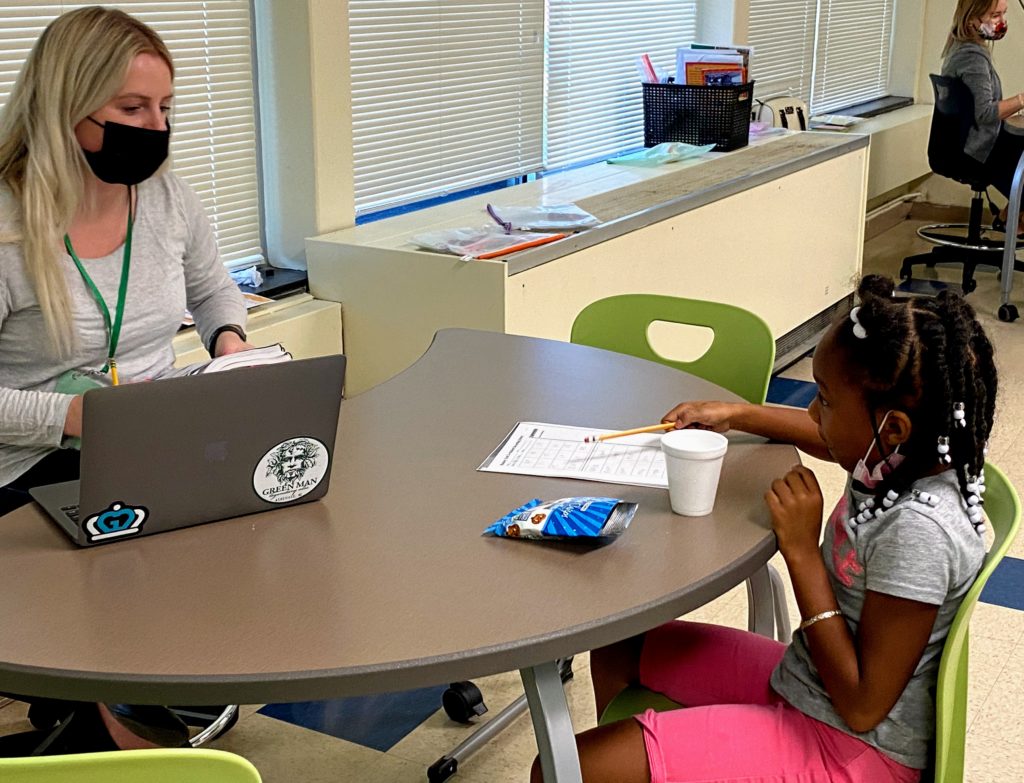
Sound Partners, which had been used for years at the other site, is an evidence-based tutoring program that provides individual instruction in early reading skills. The program benefits students in kindergarten through second grade who are learning to read and provides intervention for students in second and third grade. Groups of one to three campers worked with trained teachers to build phonemic awareness, word recognition, and fluency skills. Specifically, Sound Partners:
- Includes application of word-reading skills through storybook reading practice.
- Provides kindergarten instruction in phonological skills and initial sound identification.
- Improves phonemic awareness, decoding, word identification, and spelling skills.
- Provides scaffolded practice in phoneme segmentation.
The program was taught by two pre-service teachers from the university, providing them with valuable clinical experience before their senior year. Washburn and her UNC Charlotte colleagues’ plan is to expand opportunities for more pre-service teachers to have the opportunity to teach Sound Partners in future summers at Niner.
SOLID Start integrates science and literacy
Steeped in the research on how children learn to read, The SOLID Start project (Science, Oral Language, and Literacy Development from the Start of School), integrates science and literacy. Components of the SOLID Start curriculum include unit and daily driving questions, multi-modal investigations of and experiences with science phenomena, science informational text read alouds, science writing and drawing opportunities, and science synthesis discussions to build children’s oral language with a focus on explanations of phenomena.
The first unit was engineering-based and focused on force and motion. Niner campers built and tested their own toy box cars to see how far and fast they could go. One activity involved using different height ramps to see how gravity affected the speed and distance their cars traveled.
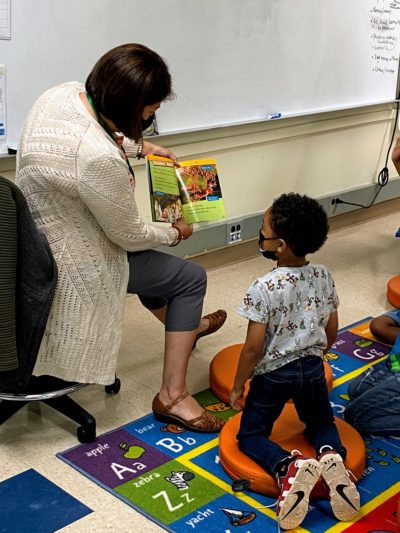
During the “Ever-Changing Environment” unit, campers studied why plants and animals change their environment. They had ant farms in the classroom so that they could make observations about how ants build their tunnels. They built beaver dams out of clay and popsicle sticks to observe how the structures affected the flow of water. Plants growing through cracks in the sidewalk provided a lesson about the conditions plants need to survive.
“SOLID Start provides lots of high-quality interactive read alouds with every lesson that help kids make sense of what they are seeing and doing first-hand. They have the opportunity to make connections and build background knowledge based on their first-hand experiences and then apply it in the context of reading and discussing the text,” Fitzgerald said.
Niner’s summer reading camp also teamed up with the Greater Enrichment Program (GEP) of Charlotte to provide at least two hours of enrichment daily. GEP, a nonprofit focused on preventing summer learning loss, has over two decades of summer programming experience in west Charlotte. GEP created six weeks of themed educational and enrichment opportunities that spanned the gamut from golf field trips to gem-mining to Brazilian martial arts and in-house visits from ImagineOn, Discovery Place, local artists, and the Mad Scientist.
Niner campers took “mastery tests” at the beginning of camp (for initial Sound Partners lesson placement) and throughout camp, which tested students’ ability to apply taught skills (letter and word reading and spelling, sight word reading) without the teacher’s help. On average, students scored 85.6% on their final mastery test of the summer, whereas their initial mastery test average score was 72.4%. Pre- and post-test scores on standardized measures of reading revealed that, on average, NUE campers made significant growth in phonemic awareness and word reading skills and maintained oral reading fluency skills. It is clear that Niner campers grew in their reading skills this summer.
Proud of the work that has been done so far, Broome is confident that NUE will become a blueprint for creating highly engaging, successful educational programs across the state.
“After 29 years in education, this is the first time in my career that the students truly come first,” Broome said. “At Niner, we constantly ask ourselves, who are the people we are serving and what do they need? That is how we build our curriculum and how we look at our educator preparation program. It’s not a cookie-cutter approach. It is customized to the students in front of us, which is a pretty incredible thing.”
Recommended reading
